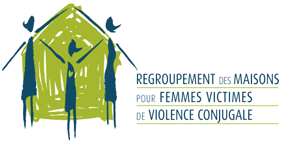Today ends this month’s national and global campaigns promoting solutions to fight gender-based violence, as well as domestic violence experienced by women.
A recent article published in La Presse, Violence conjugale: les employeurs et syndicats appelés à agir, spotlighted a recent campaign launched by the Regroupement des maisons pour femmes victimes de violence conjugale called “Workplaces allied against domestic violence” intended to mobilise employers and labour unions to better support victims.
The president of the Regroupement, Chantal Arsenault, kindly accepted to answer our questions to tell us more about the initiative.
CAPE: Can you tell us a little more about your awareness campaign “Workplaces allied against domestic violence”?
Chantal Arseneault: The goal of our campaign is to make companies and unions aware that they can make a difference in the lives of women who are victims of domestic violence. While domestic violence generally happens behind closed doors, violent spouses will continue to exert their control beyond the home.
It isn't unusual for a victim of domestic violence to receive incessant calls, emails or texts from her partner, or for him to barge into her workplace or wait for her at the end of her workday.
A study conducted by University of Western Ontario in collaboration with the Canadian Labour Congress, [1] showed that one out of three women workers had been a victim of domestic violence and that half of them indicated that the violence continued at work.
CAPE: What are the effects of domestic violence at work?
CA: Obviously, these actions have an impact on the victim. Harassed, concerned and afraid, she risks being less productive. Some women will also have to be absent from work to hide injuries or consult a physician or another professional.
But violence also has an impact on their colleagues who may be uncomfortable, afraid of being confronted by the partner, or compelled to share work the victim cannot accomplish. This violence also has consequences for employers. According to the Conference Board of Canada, 71 percent of employees have had to protect a victim of domestic violence.[2]
CAPE: What actions are you taking vis-à-vis employers and unions?
CA: We want to encourage employers and unions to act. In the context of our campaign, over 1500 Québec employers and unions will receive an awareness and information kit on the problem of domestic violence and on the measures that could be deployed to protect and assist victims.
This kit will be accompanied by a pamphlet indicating the contact information of the member homes of the “Regroupement” providing assistance and shelter, which can offer their support and expertise. They will be available to provide information, answer questions, organise conferences, advise managers or union stewards in charge of supporting the victims and, of course, accommodate victims if necessary.
By acting together, we will push back against domestic violence and create a safety net around the victims!
CAPE: What actions do you suggest employers and unions take to support victims of domestic violence?
CA: Employers can mandate a manager or their human resources department to support victims or guide them to the appropriate resources. They can deploy measures to limit harassment by violent partners, such as screening calls, changing the employee’s telephone number or email, escorting her to the parking area, changing her schedule whenever possible or transferring her position, granting the employee leave to consult a lawyer or a doctor, to prepare for her departure from home, etc.
Unions can provide information for distribution to their members and organize awareness activities that addresses domestic violence, particularly in partnership with a home offering assistance and shelter (conference, workshop, training, theme day, etc.). They can make the employer aware of the importance of taking action and negotiate clauses in the collective agreements providing for leave for victims (particularly so they can consult resources) and to ensure they do not suffer disciplinary actions if they must be absent due to violence.
Keeping their job is essential for women who are victims of domestic violence. Without a secured income, it is even more difficult for them to leave their violent partner, meet their needs and their children’s, and cover the necessary expenses to reorganize their lives.
CAPE: Can you describe an example of a good action already taken to support victims?
CA: Some unions have shown initiative by designating and training caseworkers for women in the workplace. Time has been created for them to receive and support victims of domestic violence and they have dedicated office and confidential line.
CAPE: Thank you Chantal! These are good tips that can also apply to men who are victim of domestic violence. Not often reported on, there are men who experience physical and mental abuse by intimate partners, which is not as covered in the media. CAPE stands strongly against all forms of violence, be it at home or in the workplace that is perpetrated against anyone - women, men and members of the LGBTQ2+ community. We salute and support your initiative!
A New Clause for Victims of Domestic Violence
As part of its commitment to supporting victims of violence, CAPE successfully negotiated the inclusion of a “Domestic Violence Leave” in the new collective agreements*. This was a compassionate decision to better assist our members who may be victims of abuse. The specific articles are listed below:
- Article 21.18 for ECs
- Article 21.24 for TRs
LoP and PBO members may refer to Article 19.18 “Leave with or without pay for Other Reasons” of their respective collective agreements to acquire leave for spousal/domestic abuse. Members will need to consult with their immediate supervisors.
As these matters are sensitive, we strongly advise you to contact your Labour Relations Officer as well.
[1] Wathen, C.N., MacGregor, J.C.D. and MacQuarrie, B.J.,(2014) Can Work Be Safe When Home Isn’t? Initial Findings of a Pan-Canadian Survey on Domestic Violence and the Workplace, University of Western Ontario and Canadian Labour Congress (CLC), Ontario, 13 p.
[2] Boyer, C. and Chénier, L. (2015), Domestic violence and the role of the employer, Conference Board of Canada




